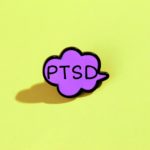Frequently asked questions regarding PTSD in veterans
PTSD or post-traumatic stress disorder has an increased rate in veterans. The veterans or military persons serve the nation with their lives. They pass through the most challenging situation of their life and face extreme traumatic conditions. Therefore they usually have post-traumatic stress disorders with severe mental and addiction issues.
Now many veterans and their families want to know about it. Usually, the veteran families have plenty of queries about how they help the veterans to overcome the PTSD conditions.
Therefore here will share some common and frequently asked questions regarding post-traumatic stress disorder that will help you. Now continue reading and find the answer to your questions.
What is PTSD in veterans?
PTSD stands for post-traumatic stress disorder. It is the condition that most veterans face while coming back to everyday life after passing the stressful situation in their life. Usually, post-traumatic stress disorder appears after the months or years of a stressful situation. the veterans face a lot of trauma in their military services, so they typically have the traumatic stress disorder at an older age.
How does PTSD develop in veterans?
Many of us think that the person with post-traumatic stress disorder may have had a traumatic and stressful event in the past few days or weeks. However, according to studies, we get to know that only 20 percent of PTSD patients have chronic stress disorder that comes from the traumatic events of their whole life. The veterans also have chronic PTSD as they face stress more often in their service life. Moreover, some old veterans initially have mild or short-term symptoms and usually mix with other medical illnesses.
So the veterans who experience long-term traumatic and stressful conditions end up having post-traumatic stress disorder.
How to assess post-traumatic stress disorder?
It is always challenging for veterans and their families to assess post-traumatic stress disorder. Initially, the veterans have mild symptoms like behavior change and psychiatric conditions. Therefore one of the best ways to diagnose PTSD or psychiatric disorder is through the structured interview of veterans. The questionnaires, along with the physiological assessments, help find veterans’ mental health and find out the actual reason behind the change in moods or lifestyle of veterans. PTSD is a multi-method way to see the patient’s conditions. Some veterans have minor post-traumatic stress disorder, but some have the chronic post-traumatic disorder. Both conditions have different symptoms that only experts can assess.
How to treat PTSD?
Post-traumatic stress disorder has a variety of treatments and drug therapies. Every patient has different symptoms and treatment methods according to the condition. The most common treatments for post-traumatic stress disorder include cognitive-behavioral therapies, exposure therapy, and group therapy. These therapies have different recovery times depending on the patient’s conditions.
However, exposure therapy includes the patient’s repetitive relief from fright with the controlled conditions. It helps to prevent the situation and deal with trauma. The studies also show that exposure therapies and medication help ease symptoms. Every patient gets a different medication according to the condition and expert advice. Drug therapy is less effective but helpful for the initial stage of PTSD. In addition, the biological changes also appear that lead you to affected mental damage.
What are the common symptoms of PTSD?
Every veteran has a different type of post-traumatic stress disorder. It has three general symptoms: re-experiencing. All these re-experiencing symptoms affect the everyday routine of veterans.
It starts from minor conditions and ranges to severe nightmares. However, the avoidance symptoms include neglecting the places, emotional numbness, guilty feelings, losing interest in daily activities, and having trouble remembering the traumatic conditions. These avoidance symptoms can affect the personal routine.
Now the last type of symptom in post-traumatic stress disorder is hyperarousal symptoms. It includes the feeling of tension on edge and having difficulty sleeping and focusing. These symptoms are stressful for the daily routine and demand instant treatment.
How long does PTSD last?
First of all, you need to remember that post-traumatic stress disorder differs for every veteran. If a veteran didn’t recognize post-traumatic stress disorder and did not get any treatment, it would last longer than the others. Usually, they remember the traumatic condition for a more extended period. Longstanding PTSD didn’t have constant and steady symptoms. Usually, they have severe symptoms at a time and fade over time.
However, if veterans recognize PTSD at the initial stage and get ongoing treatment, it will last for a short time. The experts or professionals will help encounter traumatic events and maintain a healthy mental state.
Why do some veterans have PTSD and others do not?
One of the most frequently asked queries is why some veterans don’t have PTSD after passing through the same phase? Remember that everyone has different mental stamina to bear the traumatic conditions. Various factors trigger PTSD in some veterans, and others have the resilience factors that reduce its risk. The veterans who have PTSD may have hazardous life events, mental illness history, and helplessness, lack of social or family support, extreme pain, and extreme injuries. All these factors trigger post-traumatic disorder in veterans. At the same time, the others have resilience factors that reduce the chances of PTSD. These factors include support from others, not facing life’s dangers, having robust strategies to stay firm on the battlefield, and dealing with fear.
Is PTSD curable or not?
Post-traumatic stress disorder has many similarities to other mental illnesses. It is hard to deal with mental illness, but proper treatments improve. However, the post-traumatic condition is curable if detected at the early stages. The veterans with post-traumatic stress disorder will significantly improve when the symptoms fade one by one. The professionals start treating the veterans by cutting the roots of PTSD. It helps the veterans to come back to everyday life from traumatic situations. Moreover, family support is critical for veterans to get a quick and timely recovery from PTSD.











